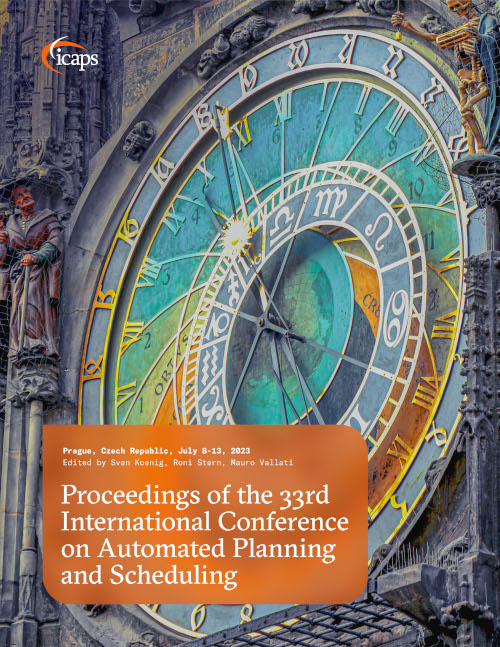A Column Generation Approach to Correlated Simple Temporal Networks
DOI:
https://doi.org/10.1609/icaps.v33i1.27207Keywords:
Uncertainty and stochasticity in planning and scheduling, Theoretical foundations of planning and scheduling, Knowledge representation for planning and scheduling, Applications and case studies of plannin and scheduling techniquesAbstract
Probabilistic Simple Temporal Networks (PSTN) represent scheduling problems under temporal uncertainty. Strong controllability (SC) of PSTNs involves finding a schedule to a PSTN that maximises the probability that all constraints are satisfied (robustness). Previous approaches to this problem assume independence of probabilistic durations, and approximate the risk by bounding it above using Boole’s inequality. This gives no guarantee of finding the schedule optimising robustness, and fails to consider correlations between probabilistic durations that frequently arise in practical applications. In this paper, we formally define the Correlated Simple Temporal Network (Corr-STN) which generalises the PSTN by removing the restriction of independence. We show that the problem of Corr-STN SC is convex for a large class of multivariate (log-concave) distributions. We then introduce an algorithm capable of finding optimal SC schedules to Corr-STNs, using the column generation method. Finally, we validate our approach on a number of Corr-STNs and find that our method offers more robust solutions when compared with prior approaches.Downloads
Published
2023-07-01
How to Cite
Murray, A., Arulselvan, A., Cashmore, M., Roper, M., & Frank, J. (2023). A Column Generation Approach to Correlated Simple Temporal Networks. Proceedings of the International Conference on Automated Planning and Scheduling, 33(1), 295-303. https://doi.org/10.1609/icaps.v33i1.27207

